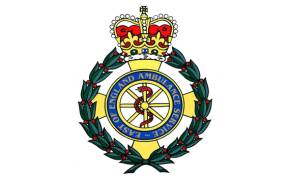
I am delighted that following a recent visit, the UEA Diploma programme for our student paramedics has been recommended for approval. This will be confirmed at the early January HCPC committee. While it's been a challenging journey we will be able to go forward now. There has been significant partnership working with the University to get to this stage and the training team will be contacting students to explain the next steps. Anglia Ruskin University are submitting their response this month to conditions set out by the HCPC.
Last week the Trust Board made some very important decisions at their public meeting which will help us move the service forwards. The approval to adopt the make ready concept will benefit both staff and patients, providing a modern way of preparing our fleet and equipment. This will form part of our future estate strategy which will be developed over the coming months as we review our current operating model to pinpoint where Make Ready depots need to be located.
The approval of the cultural audit is also another important step for us, as we look to review, challenge and change our culture. Of course we don’t need to wait for the results of this audit before we make positive changes – we can all make our own individual contribution and difference to patients and colleagues by living our vision and values every day. Please take a few moments to look at what these are and in your teams think about how together we can embed these into our everyday working lives .
As you know, the Care Quality Commission will be inspecting us in April. As part of our preparation for this and to identify any specific areas to focus on, we invited the NHS Trust Development Authority to conduct a peer review. The feedback was very positive and to build on this we have set up a Quality development Team led by Lewis Andrews to help drive quality improvements across the Trust.
However, since I joined I have been concerned about our Medicines management. I am a firm supporter of increasing the scope of practice of patient facing staff, where appropriate, including a more robust analgesic option but one that does not require additional training in cannulation. There is a lot of evidence to support the use of the intranasal route for drugs such as naloxone.
Before I can ask the Medical Director to consider such options, we need to improve how we manage our medicines, particularly controlled drugs. It is disappointing to hear that despite directives issued by the Clinical Directorate, we still have some Paramedics whom are not following best practice in relation to managing controlled drugs. This situation has to be resolved before we can consider any further changes in practice. Therefore, I am asking all Paramedics to support this important work being led by our excellent Medicines Management Lead, Anna Zamczyk.
Our belief systems around clinical adverse events is also an area we need to reflect on. During my visits to meet colleagues I have regularly heard about a perceived blame culture where clinicians believe they will be disciplined for making clinical mistakes. This set of beliefs seems to be a significant factor influencing whether a patient is taken to hospital or not, even if the clinician is satisfied that the patient does not need A&E attendance.
I have taken the time to review our Variations in Clinical Practice policy and can understand why some of these myths exist. Words such as Hearings and Panels create the wrong impression. Colleagues whom have been through the process have actually found it to be very supportive and it is working well at the moment. Nevertheless, I have asked the Clinical Directorate to review the current policy so that it is clearly focussed on and correctly balanced regarding open and transparent reporting and learning from events in a way that promotes a “no blame”, “fair blame” or “just blame” culture.
Clinical practice is a human endeavour and therefore, mistakes will happen. However, there is a clear obligation on all patient facing staff to work within a system that ensures the potential for error is minimised and where it does occur, that we learn from the event with a view to future prevention. Sir Liam Donaldson, Chair of the World Alliance on Patient Safety said that “to err is human, to cover up is unacceptable, to fail to learn inexcusable”. In my experience, adverse events generally occur because of system errors or human errors. When human error occurs, the cause is rarely a deliberate act, hence, the best response is peer support, remedial training, reflection on clinical practice and sharing the learning. The response must not and cannot be one of blame and discipline, unless the adverse event was caused by a wilful or deliberate act or omission which is extraordinarily rare.
It is now time for each and every one of us to dispel this myth about a blame culture. Where system or human errors occur, we must, as healthcare professionals, engage in the associated learning processes so that we become better clinicians and provide safer care to our patients.
With best wishes,
Robert
Published 3rd December, 2015